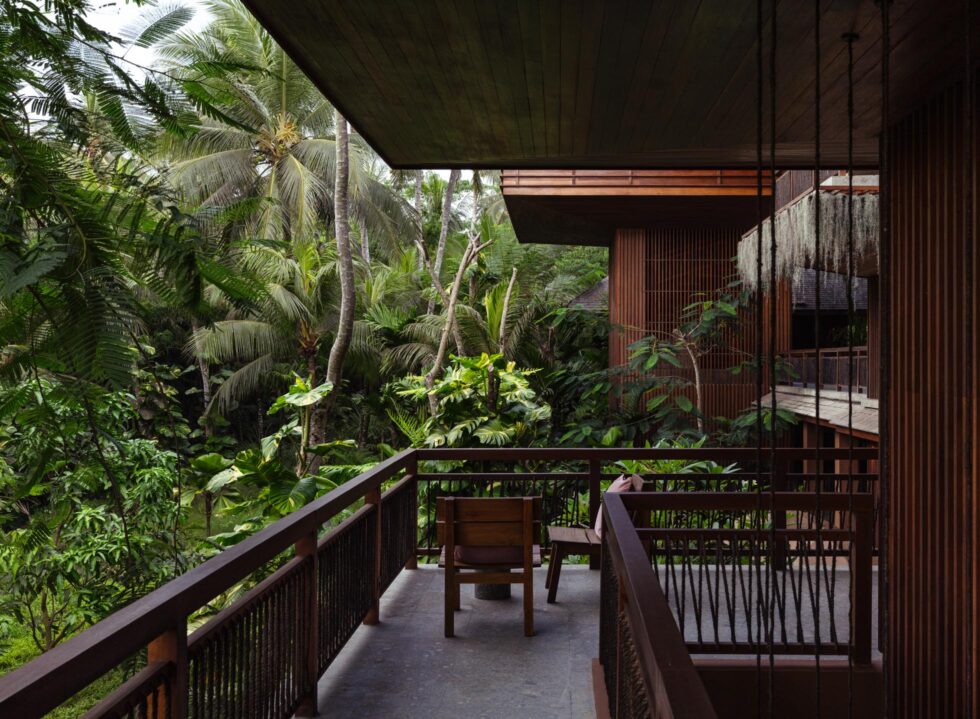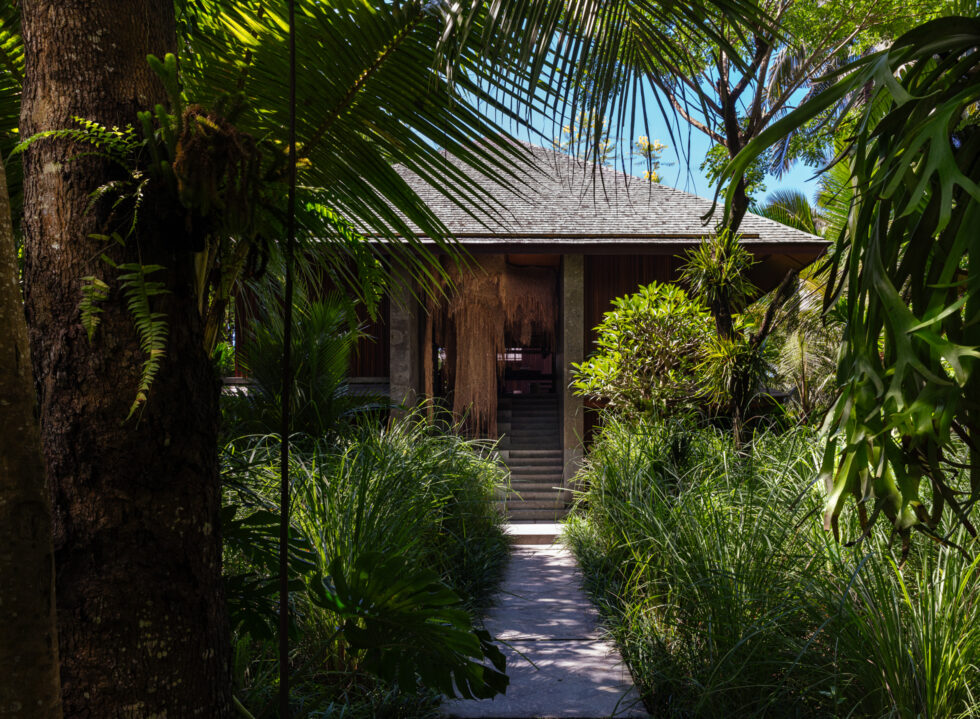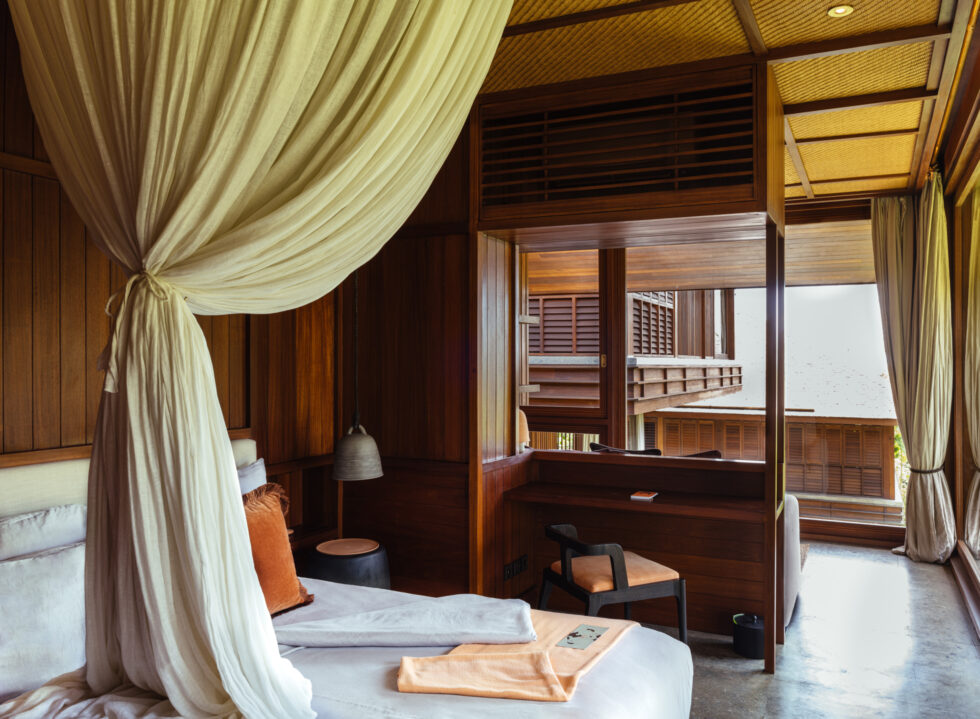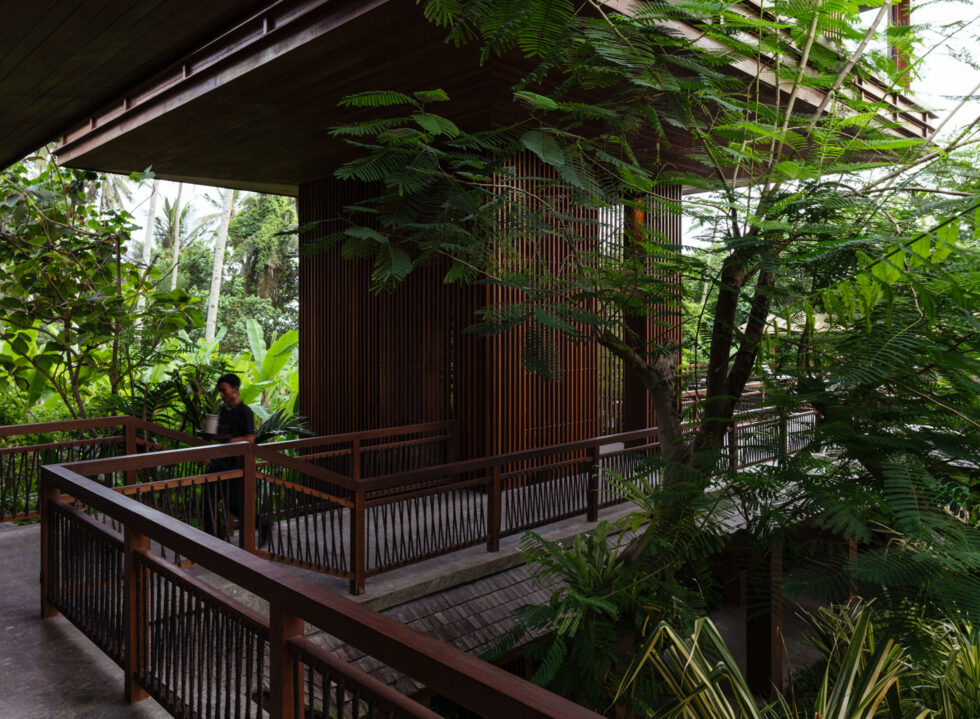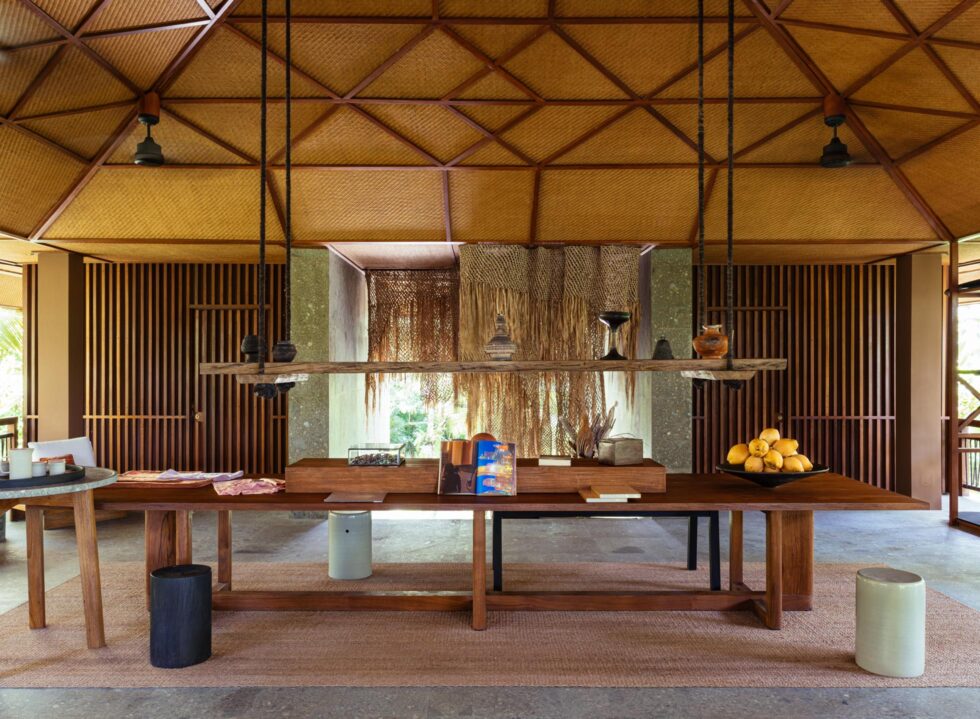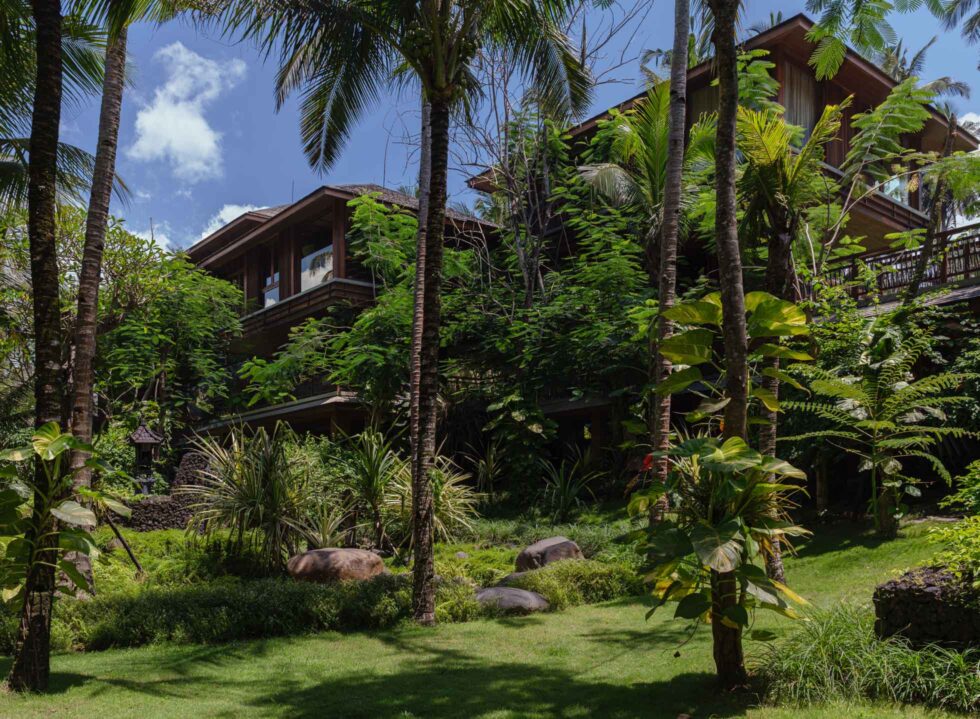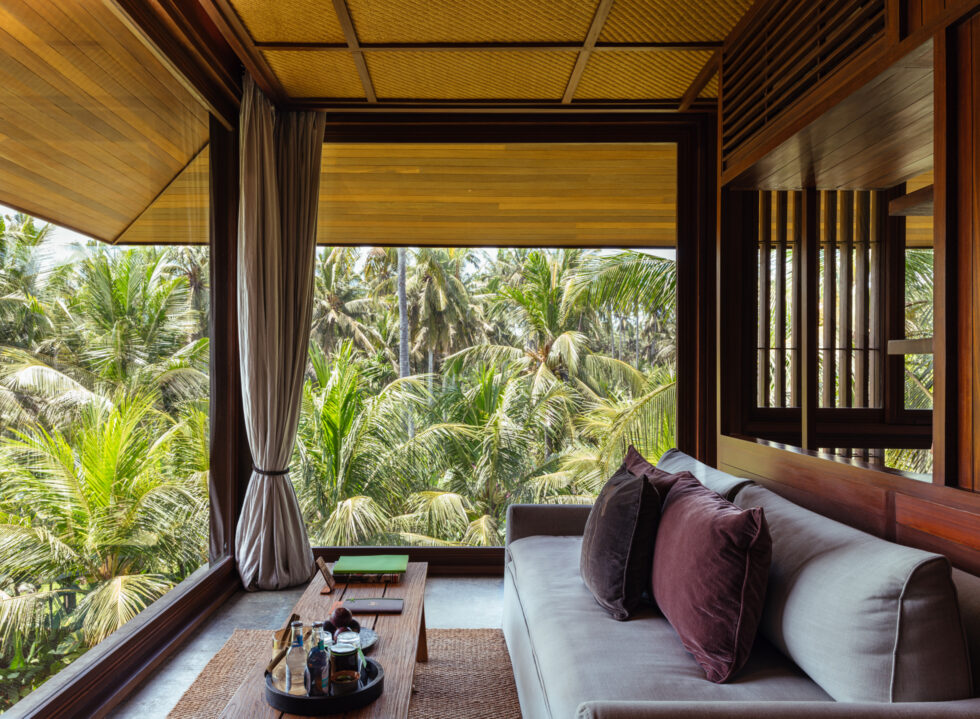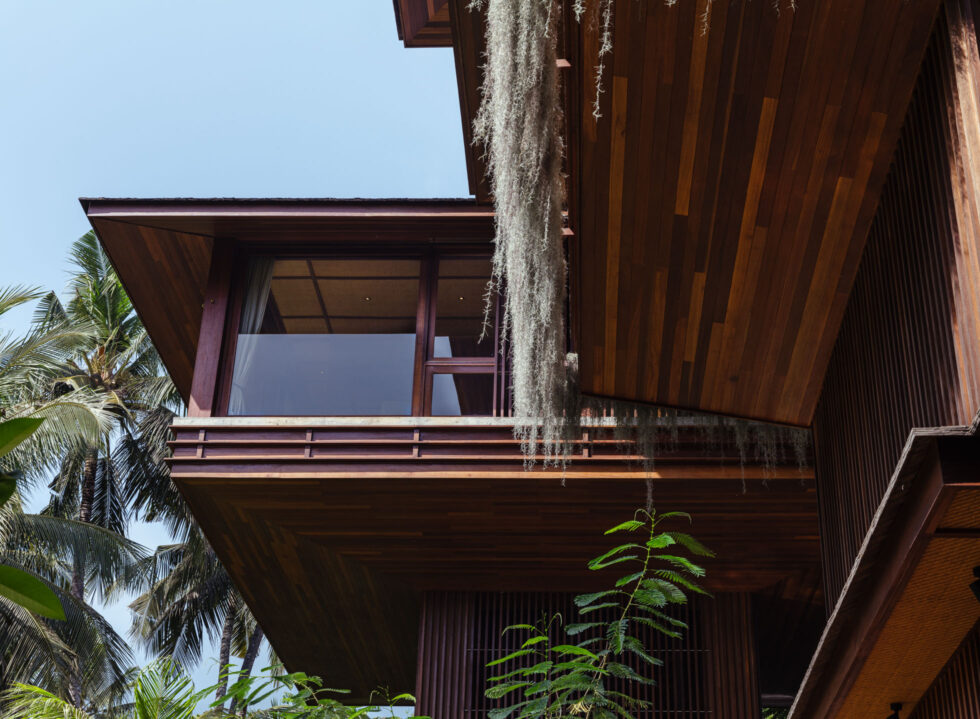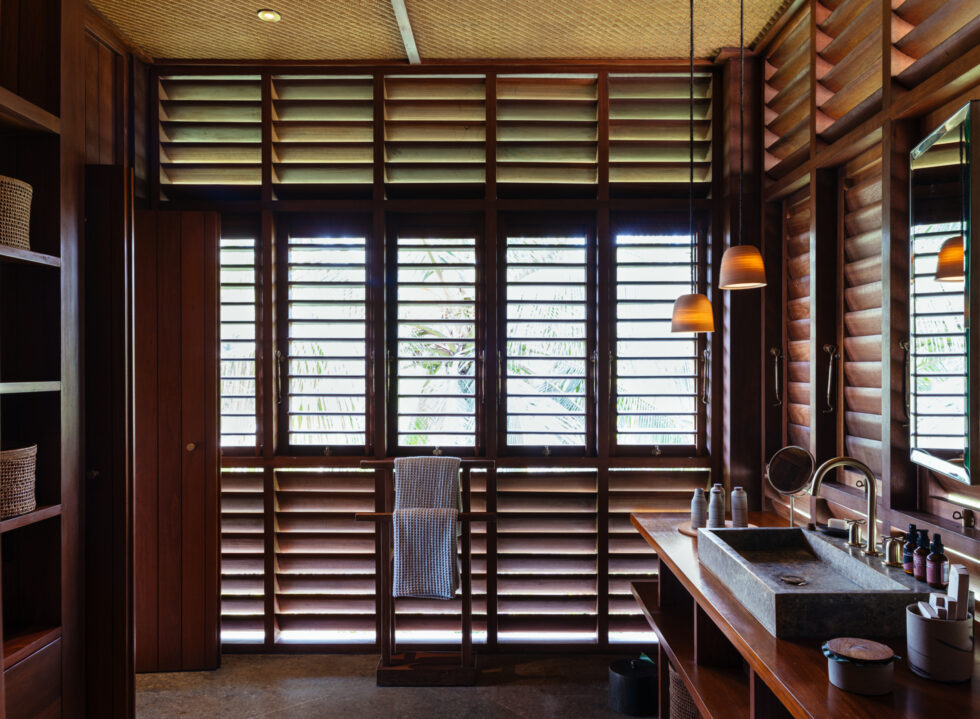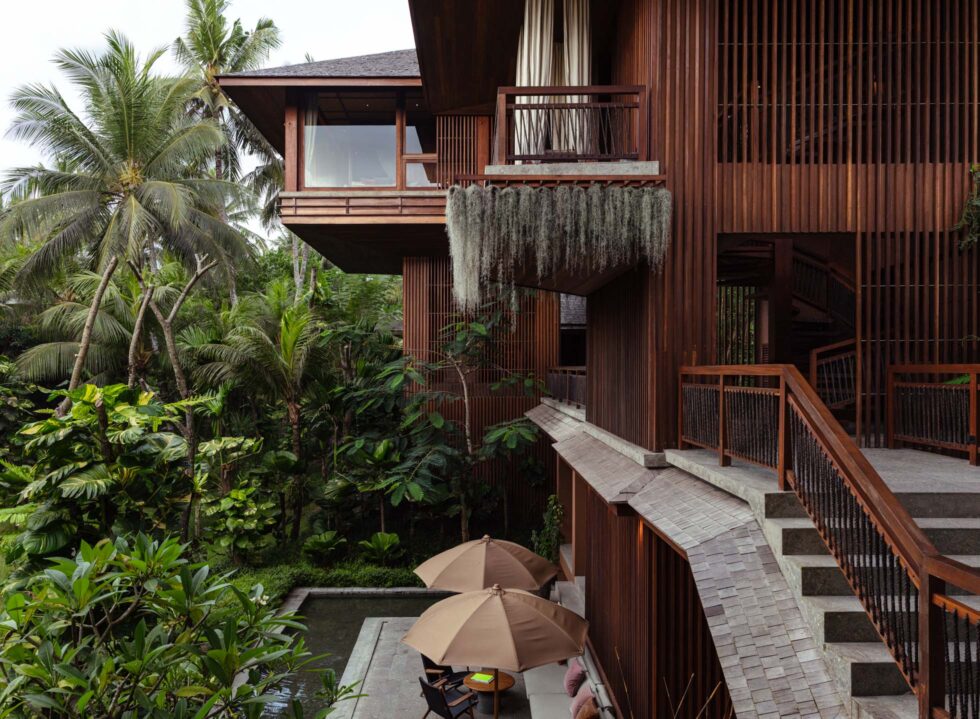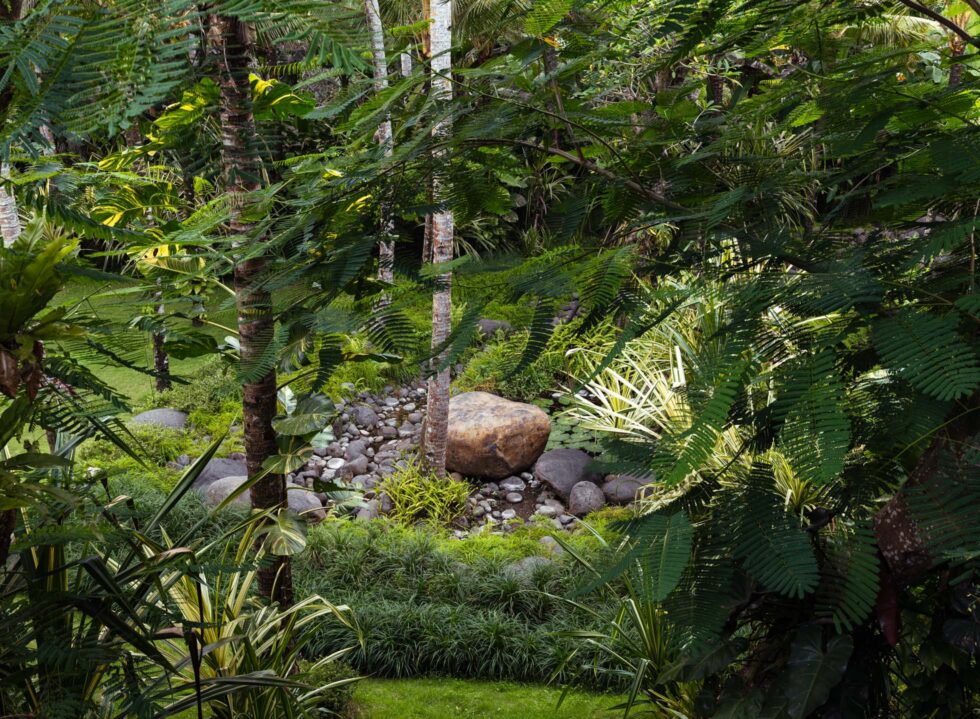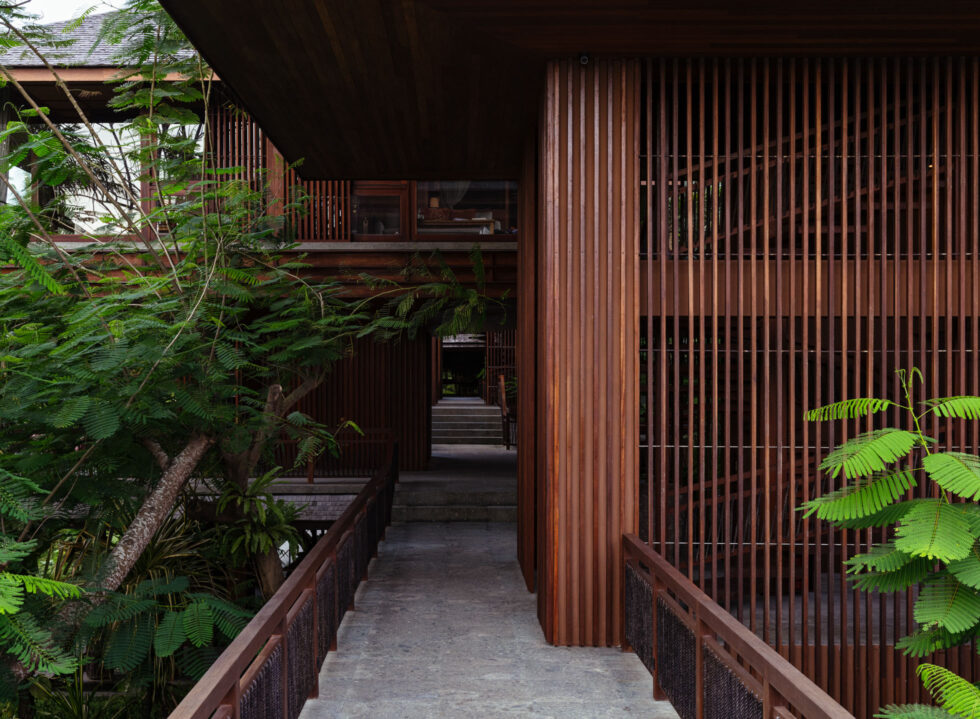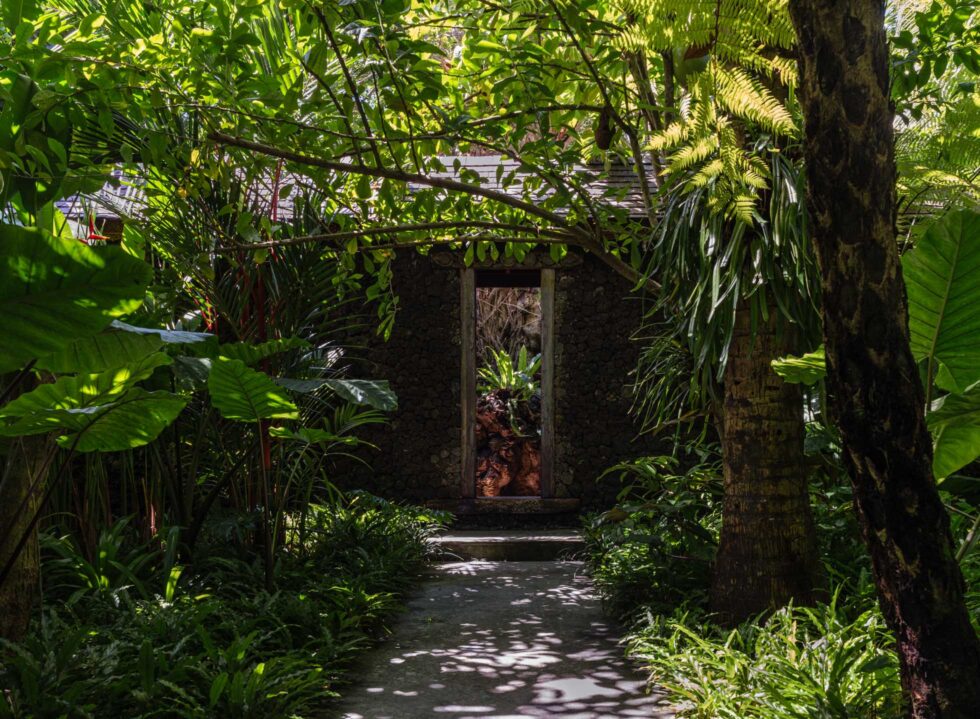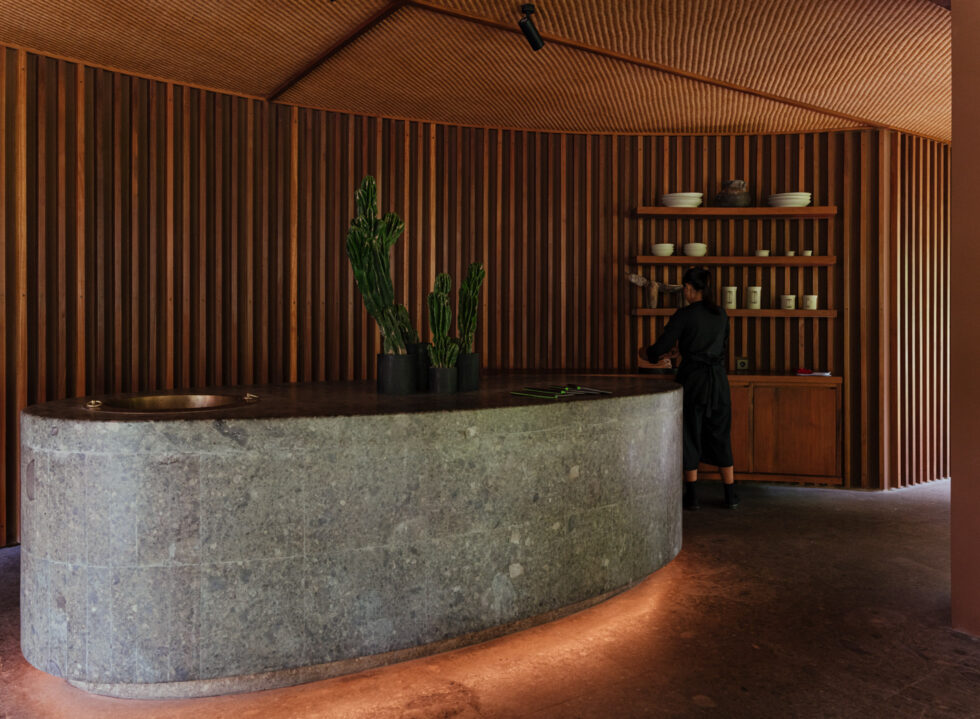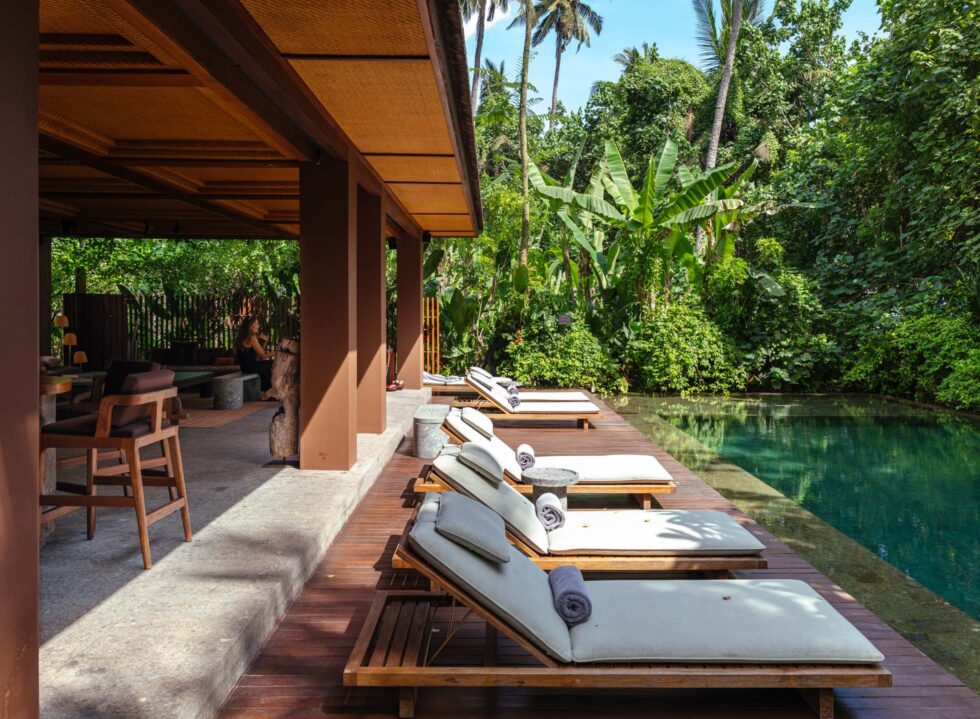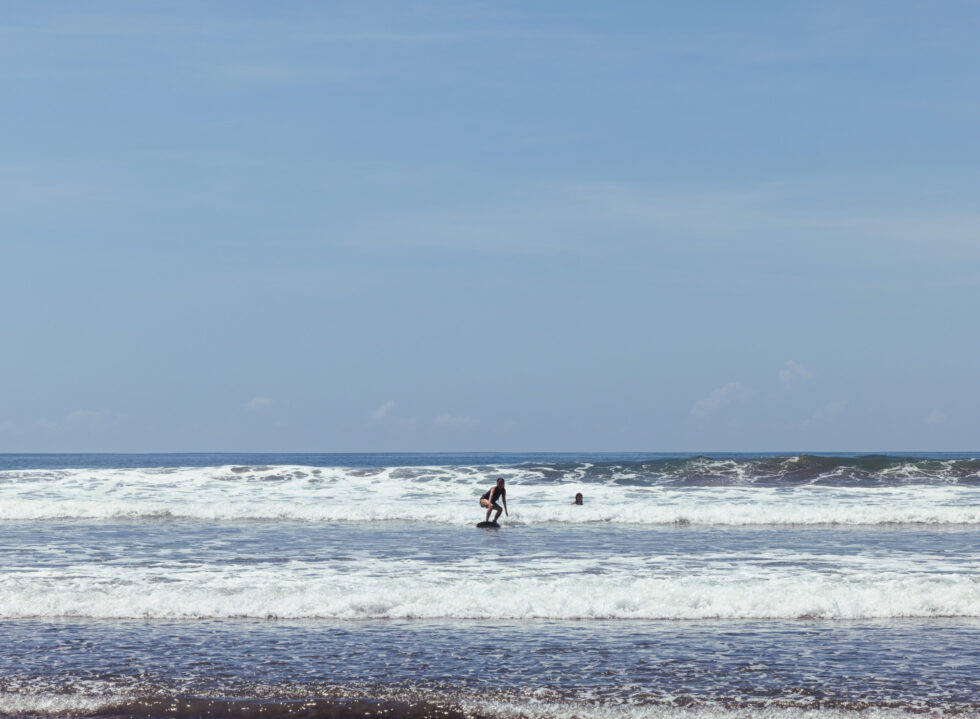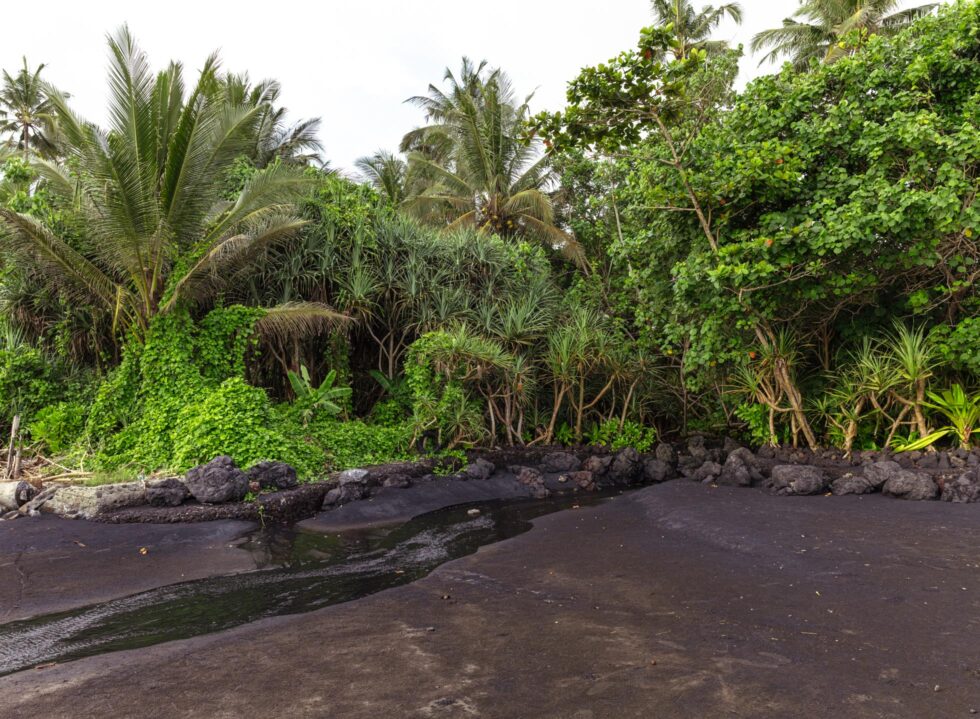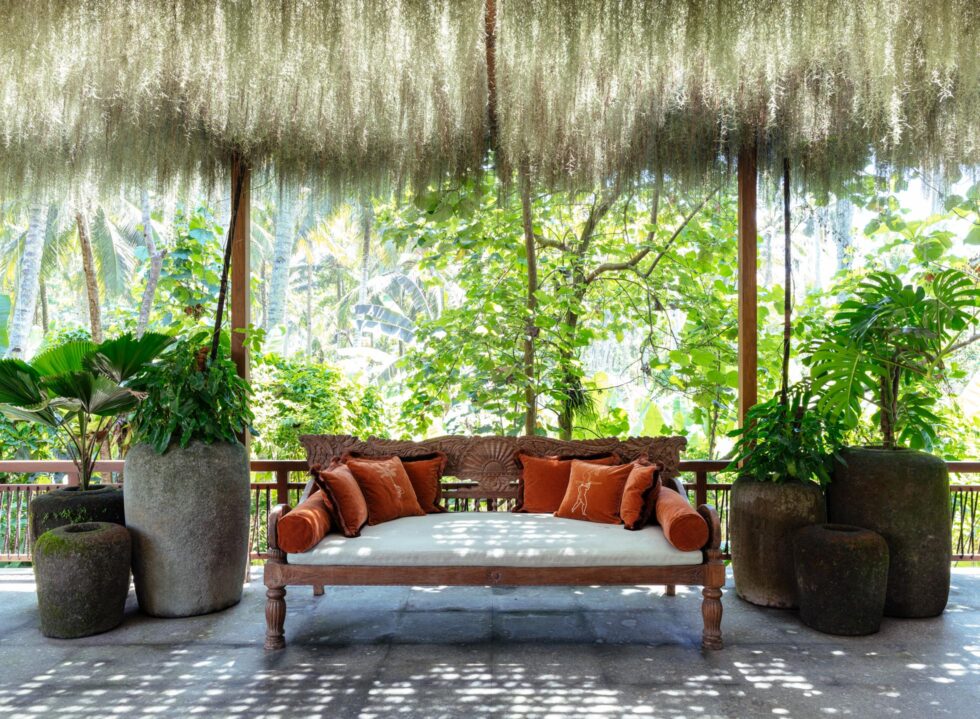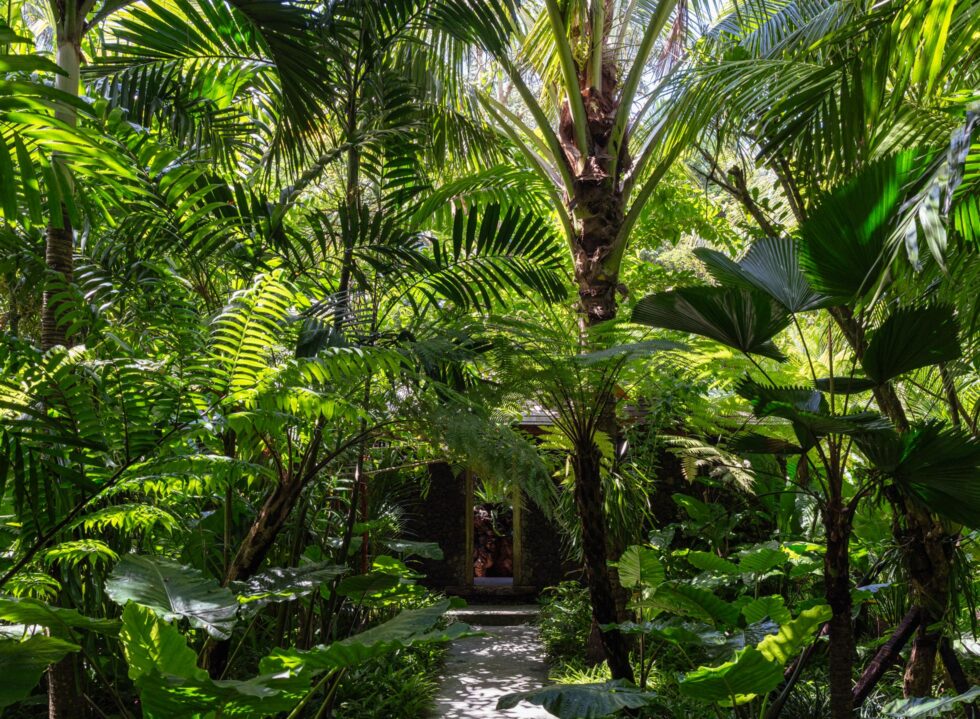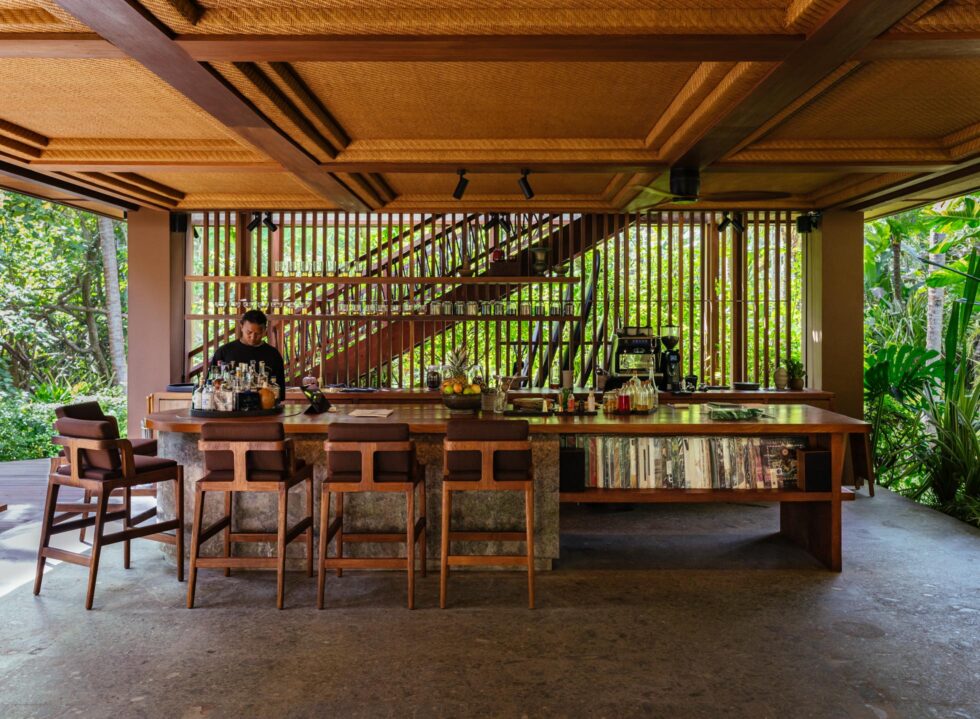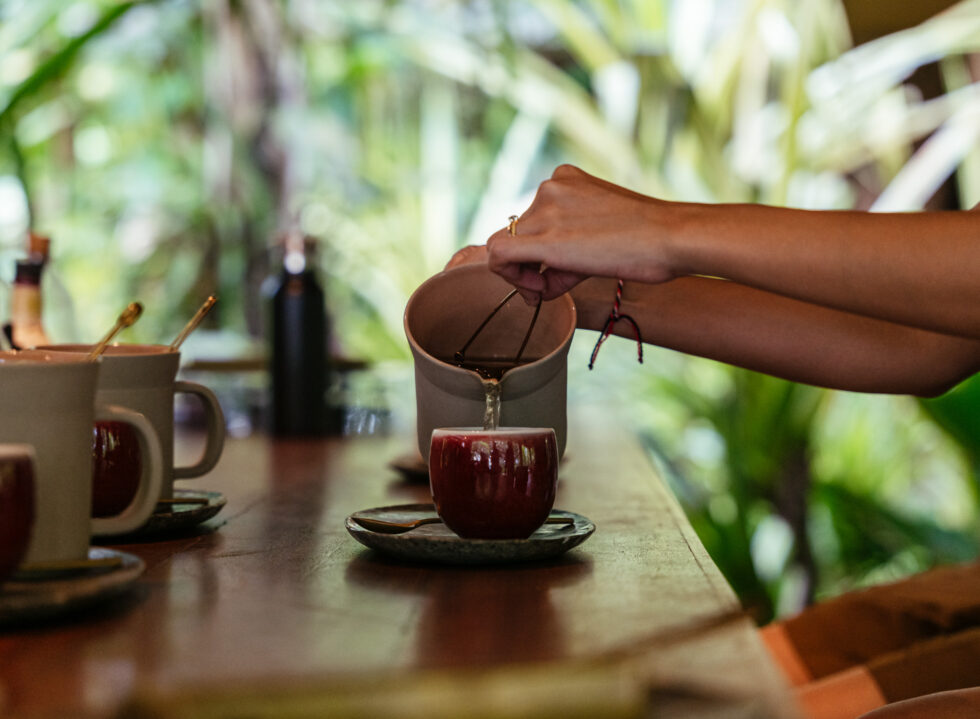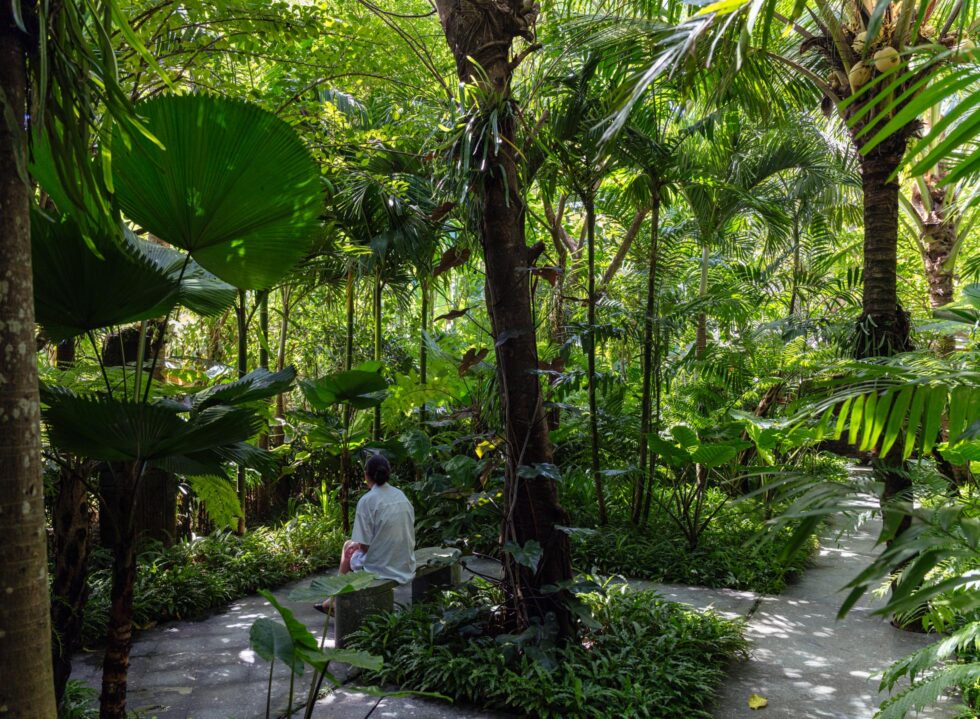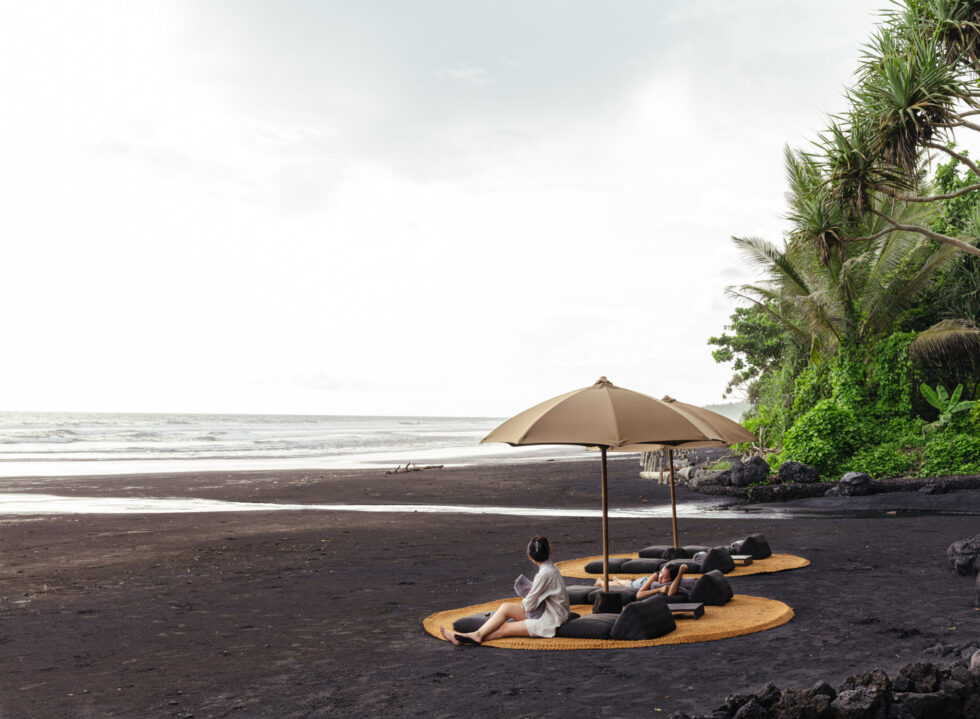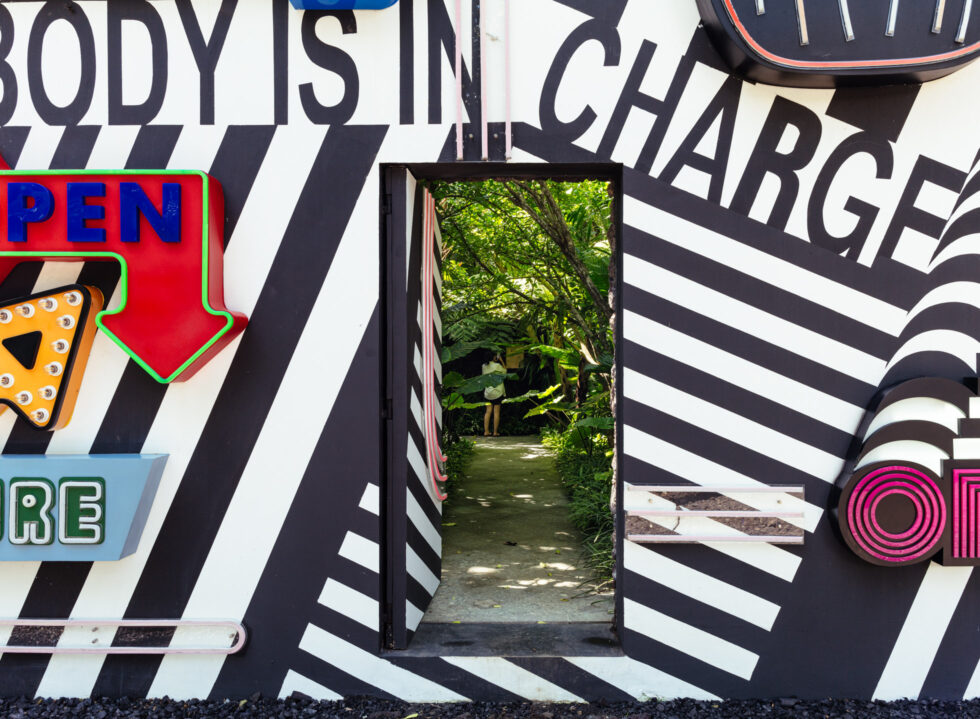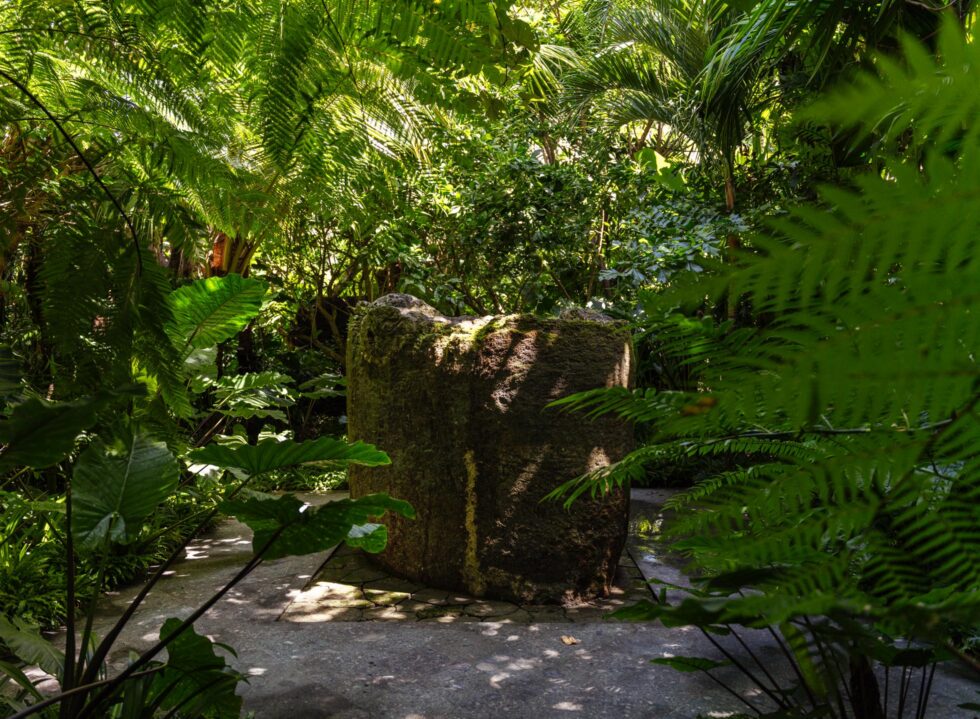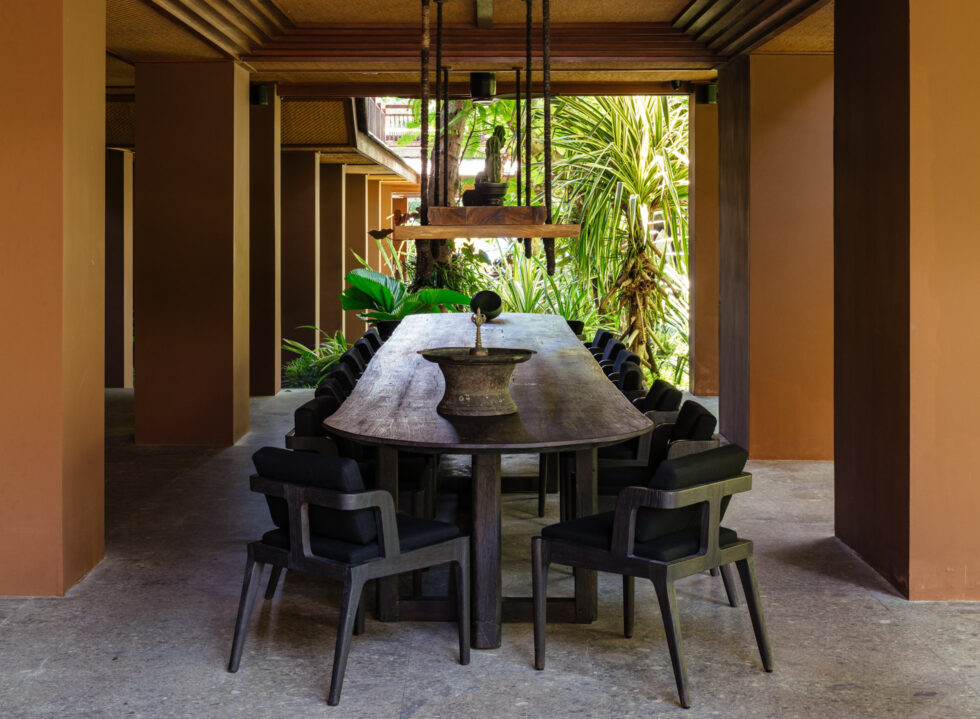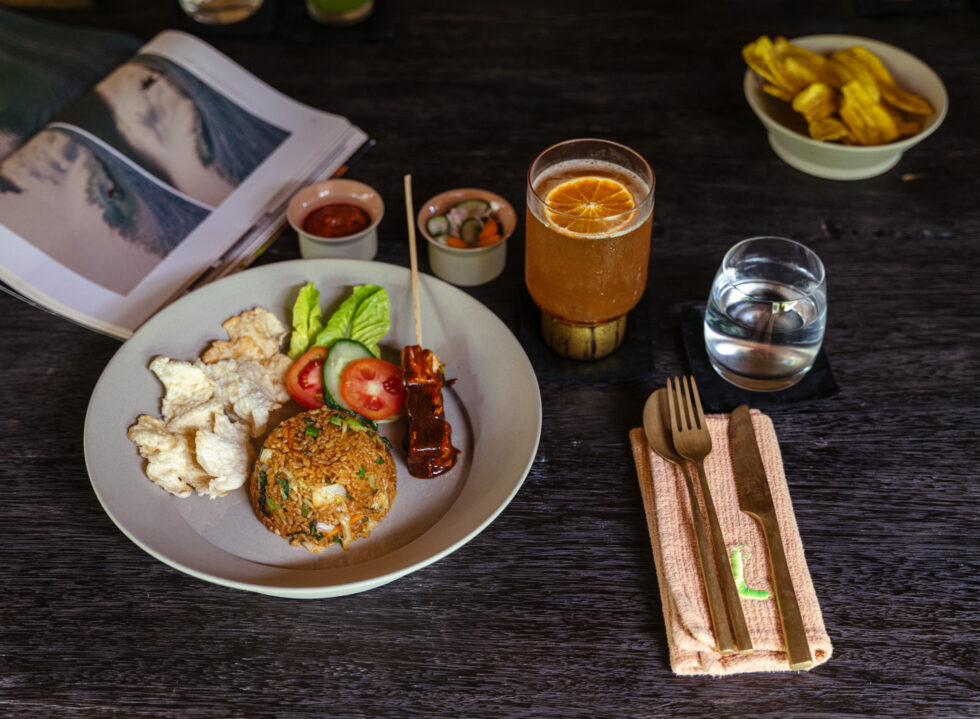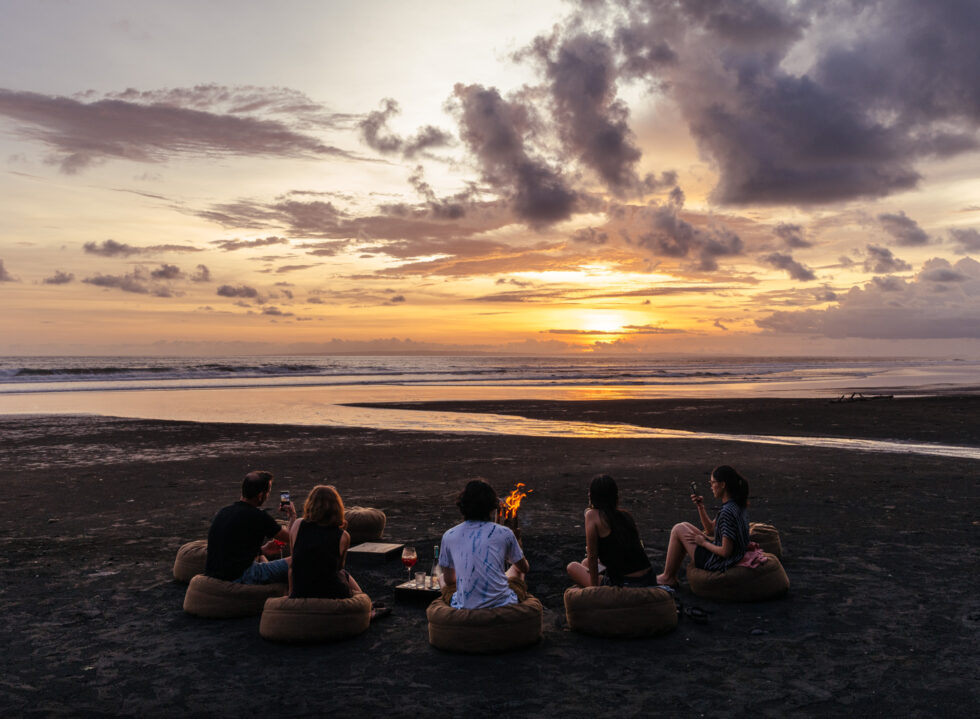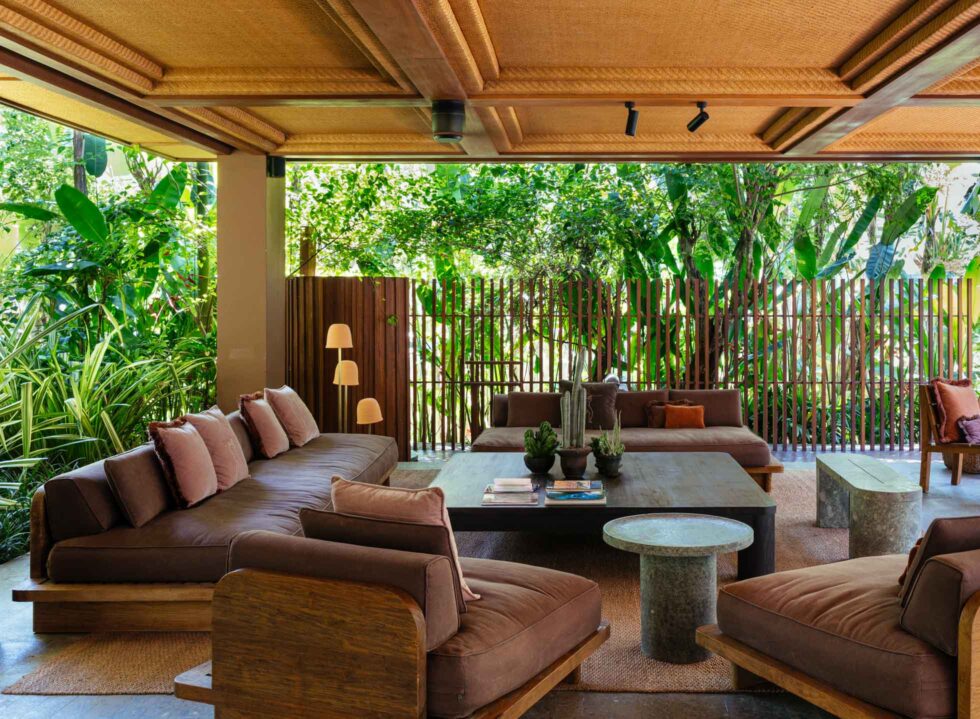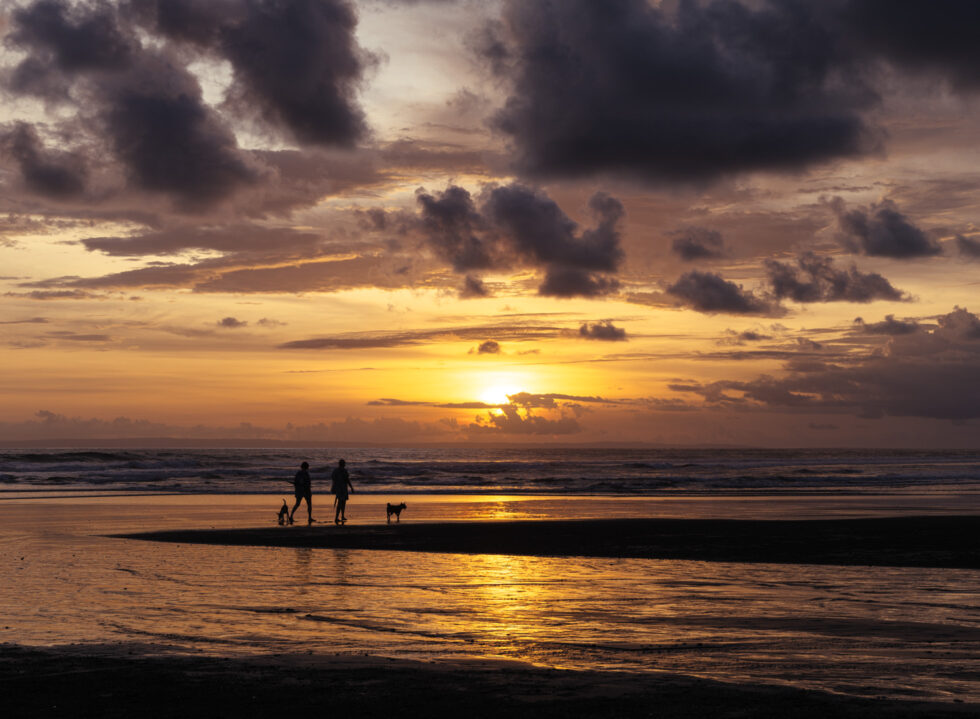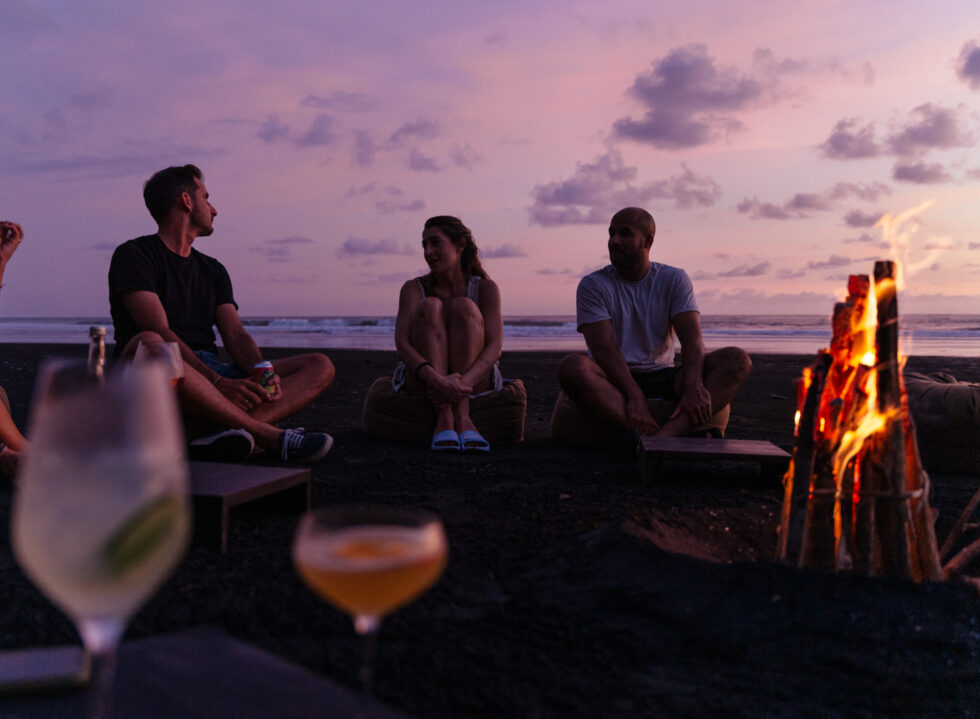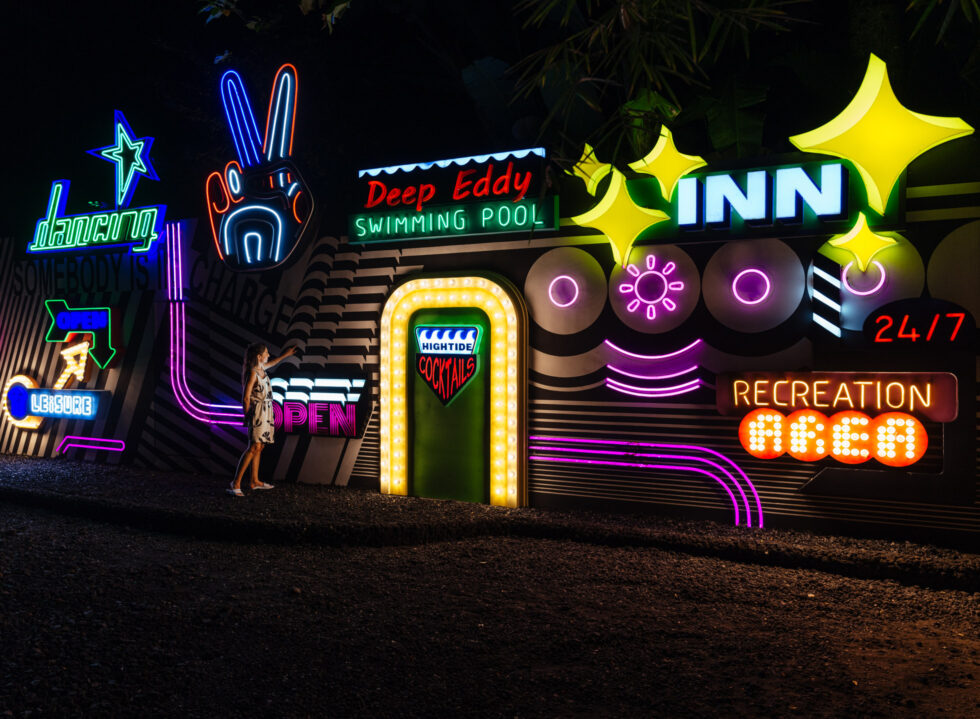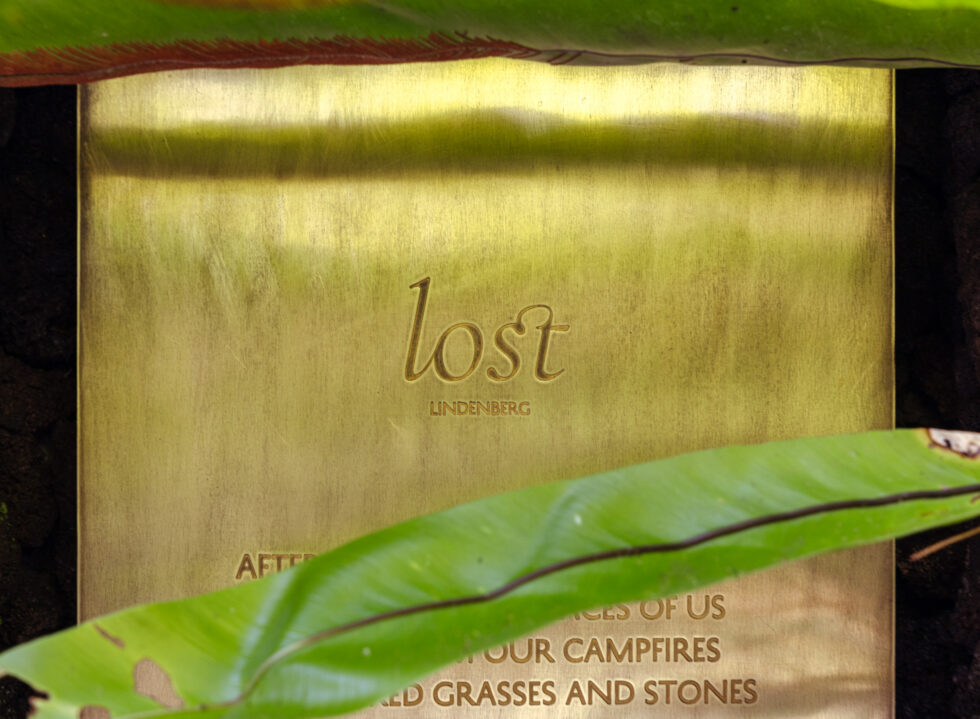Leave it to LOST LINDENBERG to set up the kind of cheeky entrance that makes one go, “Hold on, I didn’t sign up for this.” The polarising installation by artist Tobias Rehberger—a giant wall depicting various garish neon signs that leaves one questioning if they’ve arrived at the right place—is no doubt a great way to break the ice and get the conversation rolling after a long commute to the sleepy district of Pekutatan in the west coast of Bali where the hotel is located.
Once through the narrow door of the installation, the senses are flipped 180 degrees. Lush tropical greeneries fill the scene like an invisible hug from nature, enveloping every corner as far as the eyes can reach. But there’s still no sign of any building structure. From here, a single path leads the way deeper into LOST, passing through a huge rock-turned fountain, a shrine, and a bed of ferns, bodhi trees and alocasia with its giant leaves stretching into the pathway, brushing the arms and body. It’s as if every step assures that you’re indeed at the right place.
Designed to slow down
Just as your eyes are adjusted to the all-enveloping garden, the main compound of LOST emerges: four large tower-like structures, jutting out from the surrounding canopy, forming an axis towards the beach. The architecture of LOST LINDENBERG is designed by Alexis Dornier and Maximilian Jencquel of Studio Jencquel, where it is interpreted as a hideaway village within a jungle with every room sitting comfortably amongst the treetops.
Each tower, linked by an elevated walkway, houses two rooms that are accessible only through a climb up the spiral staircase. A delayed gratification, if you will. Once inside, one is immediately greeted by a vista of coconut trees handsomely framed by panoramic windows. The interior and its accompanying furniture and wares, which are also designed by Studio Jencquel, offer up an amalgam of harmonious details and soothing textures. Suave tropical hardwood walls and cooling Bali green stone floor extend from the living and sleeping area into the spacious bathroom, which is atmospherically lit by the sun through its wooden window louvres.
The brutalist take on the interior is also juxtaposed with the charming in-room collaterals designed by Sciencewerk (a design studio based in Surabaya and Jakarta). To wit, a pop of colours in neon lime and sandy pink on the information booklet and illustration of LOST Boys, the beguiling hotel mascot, depicted as figures in exaggerated volumes (the latter can also be found on their in-house surfboards that are made in collaboration with Pyzel).
The brooding ambience of the room naturally conspires you to slow down, and perhaps fix yourself a cocktail while taking in the view in restful contemplation. But if you prefer to head down and explore the property, the daytime is the best time to do so.
From the entrance installation, the lush garden, up to the rooms across the four towers, the concept of passage where guests embark on a linear flow of movement proves to be a striking spatial element of LOST. The transition from one zone to another is marked by distinctive space, contracting and dilating, providing a massage to the mind.
Just when you think you have reached the end of the property at the pool by the bar and lounge area, a narrow path encased by pandan trees leads you to the LOST Beach. Here at the expansive stretch of black sand beach, one can partake in private surfing lessons (included in the room rates) with local instructors or simply lose themselves to the sound of roaring waves rolling in from the Indian ocean.
Anchored in the communal experience
LOST is the fifth addition, and the first in Indonesia, of the Frankfurt hospitality group, LINDENBERG. Similar to its four sisters in Frankfurt, Germany, LOST focuses on the communal experience where a global collective of residents from different backgrounds connect and spend their time together within the compound. Come sundown, residents convene at the LOST beach and savour the sunset by the crackling bonfire. Perhaps owing to the spectacular sight, no exchange is necessary between one another as they drown themselves in a collective reverie.
Dinner, on the other hand, is a lively feast over a long communal table. While the food in LOST is strictly vegan, it is anything but boring. Prepared by a dedicated team of young locals that hail from nearby villages, the dinner aims to highlight the diversity of Indonesian cuisine.
Every night, utilising ingredients grown from the property’s garden and nearby organic permaculture, the team rolls out a rotation that features their take on dishes across the regions. No dishes are too banal for LOST. Common favourites like mie goreng Jawa and karedok share the spotlight with pumpkin focaccia, roasted pumpkin and asparagus with sliced green apple.
This is the moment where the LOST experience truly shines. Residents engage in vibrant conversations, discussing the flavours of the dishes to their daytime activities (surfing, a visit to a nearby waterfall or even not doing anything in particular) as well as welcoming newly arrived guests of the hotel, like an informal induction to the LOST tribe. One evening, a friendly German couple animatedly recounted their experience of being in the Island of the Gods for the first time.
Sustainability in mind
For a hotel that promotes communal experiences, it is also incredibly rewarding for introverts who enjoy solitary moments. With its sprawling property consisting of only eight rooms, bumping into other guests is actually a rare sight. Even if one does encounter a fellow resident, there’s a sense of an unspoken pact of leaving each other to their own devices.
On a lazy afternoon, a sunburnt Chinese lady enjoyed her private moment on the lounge’s sprawling couch, while a duo huddled by the bar for after-lunch coffee and tete-a-tete with the staff. Similarly, breakfast and lunch can be enjoyed solo at the aforementioned long communal table accompanied by staff tending the garden in quietude, their bending figures echoing one another like a Realist painting in motion.
Like most of the progressive stays in Bali, the operations at LOST are guided by the principle of sustainability. A portion of the property energy is powered by solar panels and all of the hotel products, including the restaurant, are free of animal products (similar to its other four LINDENBERG sisters). The sustainability effort is also extended to the local community through its LOST BUNCH programme which engages local surfers to provide surfing and English lessons for the children and young adults from Medewi, a beach village in Pekutatan that is known for its surfing spots.
These days, the majority of happenings and new establishments in Bali are hinging around the popular (and chaotic) Canggu area, each on a quest to one-up another with Instagrammable spots and activities that have homogenised the idea of a holiday on the island. LOST, with its location that is far from the maddening crowd, offers an antithesis to the over-tourism and culture of hyper-consumption that’s gnawing at parts of Bali.
This is also why your stay at LOST is best placed towards the end of your itinerary in Bali. A hideaway sanctuary where one detoxes themselves from the blaring beach clubs and hackneyed infinity pools that have become the norm in the past few years. A dopamine fast that affords introspective time with your own thoughts while forming a meaningful bond with fellow travellers.
If this is what it means to be lost, then one may just prefer to never be found.
